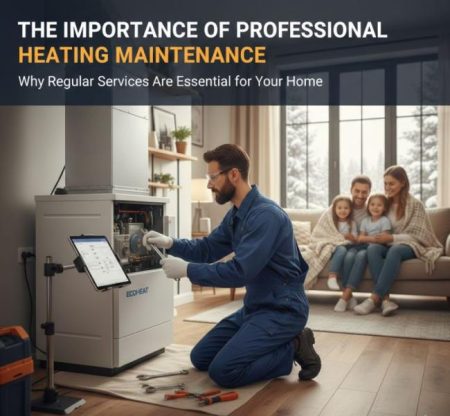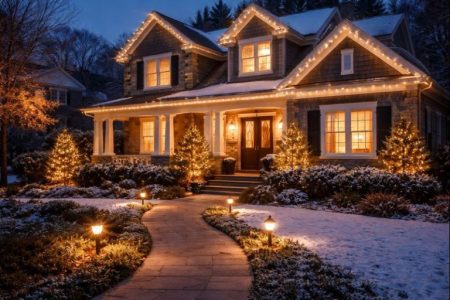Not many people can live without electricity. It helps to keep the food in the fridge cold, the lights on, among other things. However, if you are in a house with electricity, it means you also have to deal with electrical hazards around you. Electrical hazards are dangerous and can cause fires leading to property damage and even loss of life. Fortunately, it is easy to fix electrical hazards if you know what to look out for. It does not have to be about running and panicking to shut off the breaker box. In this article are some of the most common electrical hazards in homes.
- Faulty or outdated wiring

Faulty and outdated wiring are potential hazards that revolve around electrical wiring. Similar to our appliances, overtime wiring breaks down. If your home has old wires, it is time to think of an upgrade to prevent a fire from happening because of a breakdown. Signs that show your home is ready for a wiring update should help you know when to call your electrician from Minneapolis. For instance, it can be warm spots in the wall, noisy electrics, smoke coming from outlets, obvious fraying in exposed wires, not drawing enough power for all your needs, and a burning smell from outlets and walls.
- Improper extension cord use
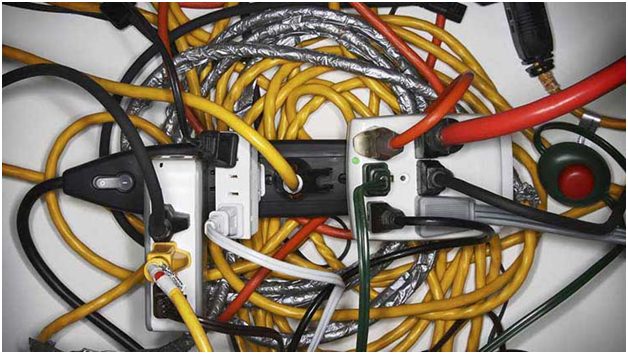
Extension cords come in handy but cause structure fires up to 3000 in a year. To get rid of these problems, ensure you inspect the power cords for any damage before using them. Do not allow the cords to rest in water or plug extension cords into one another for many days. Unless it is necessary for a specific task. Importantly, do not run power cords through walls and only use them in place of installed wiring.
- Appliances that trip circuits often
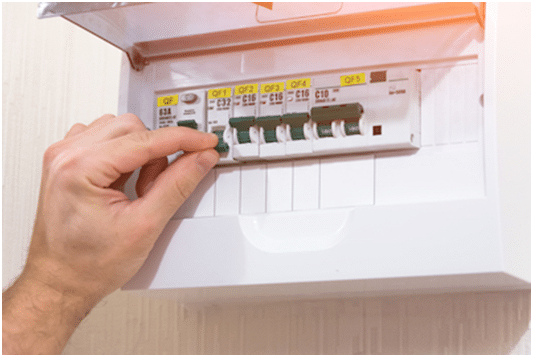
A circuit breaker that trips once in a while is usually okay. But, if it happens continuously, it is best to find the source of the problem. Check if there is an appliance you use before it trips. Are there any damaged wires you need to get repaired? If it is not easy to identify the problem and your circuit breaker is still tripping as you turn on a specific appliance or several appliances at once. Contact your electrician to advise you further.
- Overloaded outlets
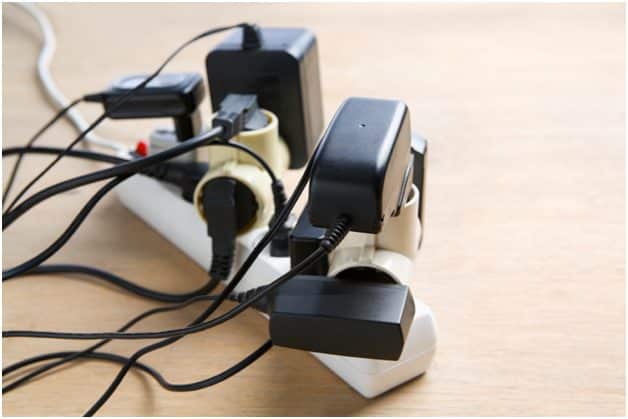
Overloading outlets is another way, just like extension cords, that homeowners try to expand the usage of their outlets. If you have added adapters or power strips loaded with multiple appliances, this is a way of increasing the risk of a fire. This is because every outlet is rated to supply a specific amount of power. Check with your electrician to understand more about your home’s electrical load. Assuming and using up every available spot on your power strip is dangerous. A professional will help you know how much electrical load each of your outlets will handle to know how best to use your outlets.
- Water near wires or appliances
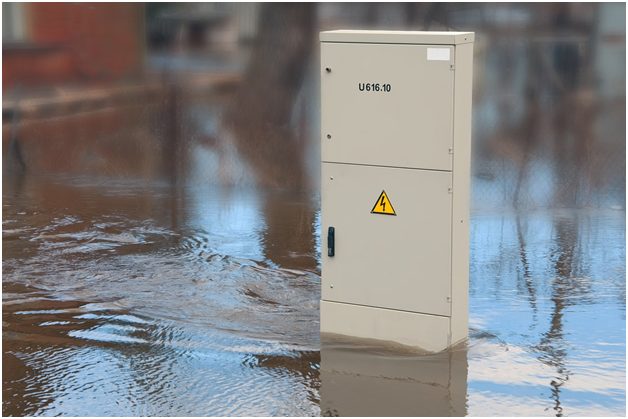
Water and electricity should not mix to avoid causing an electrical shock. Therefore, to prevent electrical shocks from happening, install outlets as far from water as possible. Look for GFCI outlets that have the test and reset options. Since you should use them for installation in kitchens, bathrooms, and other areas where water is present to prevent any injury where water and electricity meet. Also, keep an eye out for any leaking water. For if it interacts with your electrical wiring or electrical appliances, it creates a disaster. For this reason, if you have leaky pipes, standing water in a basement, or a leaky roof, get it fixed soon to avoid a short and improve overall Home Security.
To sum up, electricity makes our lives easy every day, but it is powerful and dangerous too. Therefore, avoid or prevent the above electrical hazards and others like using wrong light bulbs and follow the wattage ratings to use the right one. Also, improperly protected outlets cause injuries and mostly to kids, and it is best to use tamper-proof outlet covers. Do some upgrades around the house and install smart outlets you can turn off from your phone? Optionally, contract an alarm company to monitor smoke and fire in the house.




